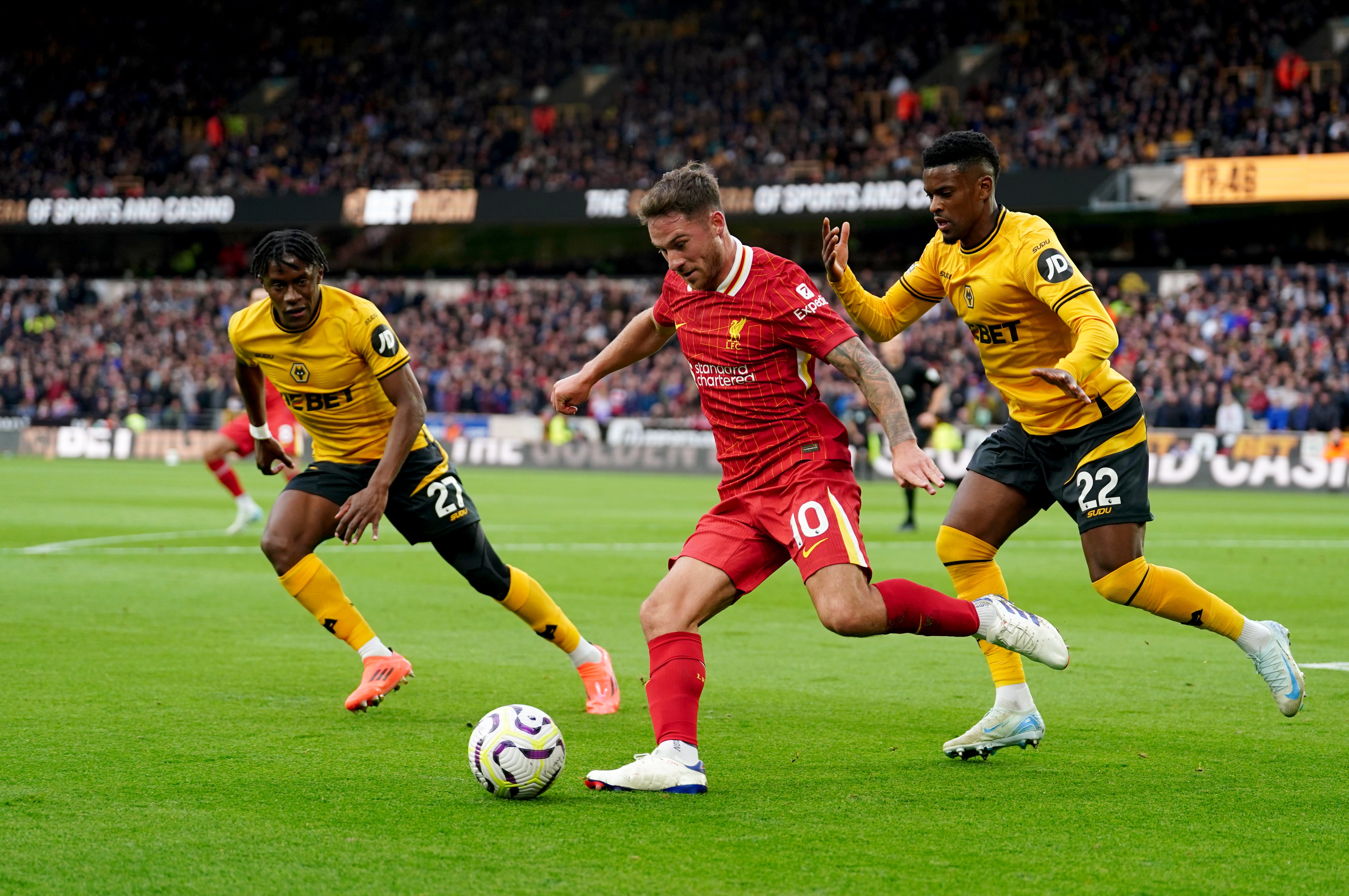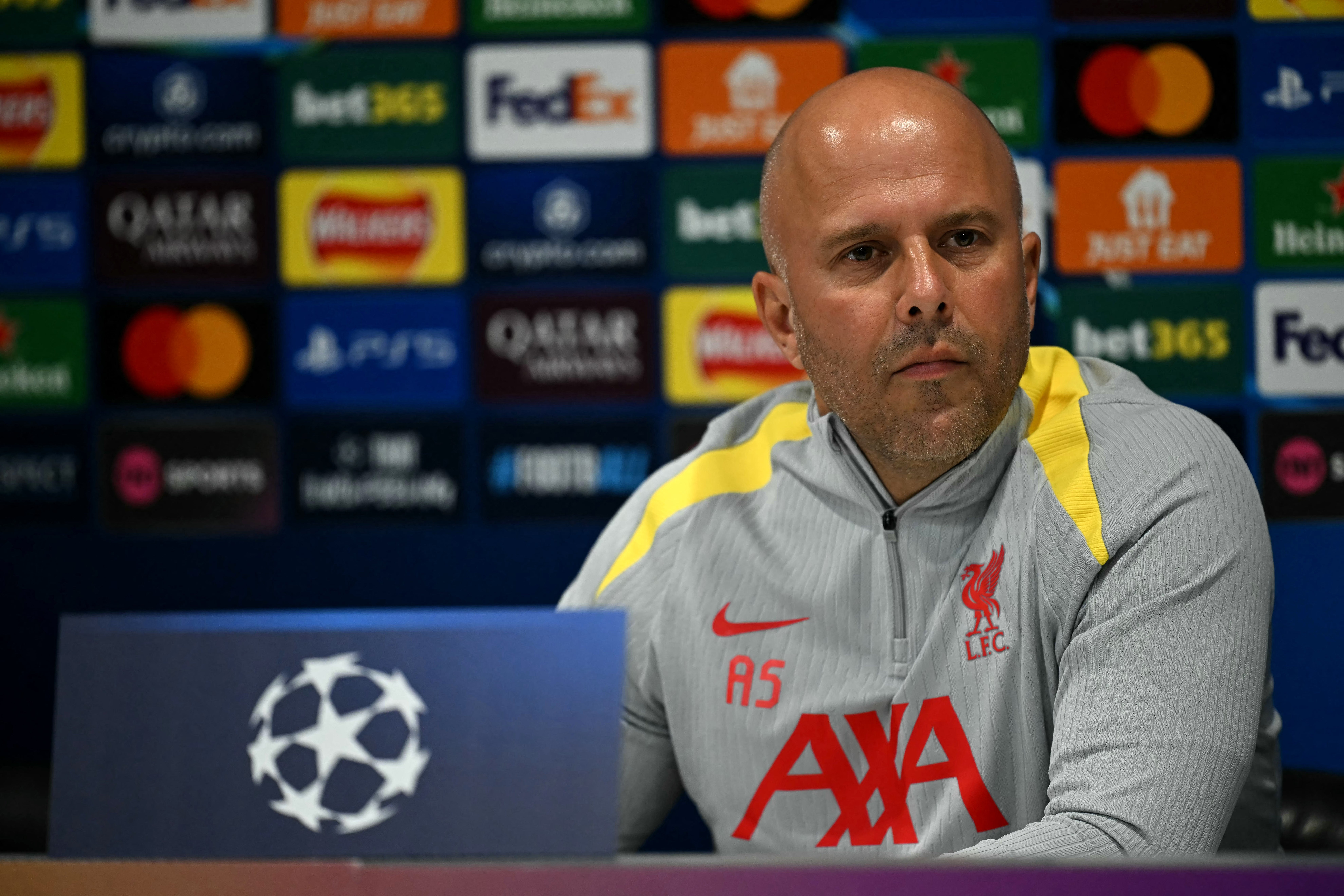
Your support helps us to tell the story
Our mission is to deliver unbiased, fact-based reporting that holds power to account and exposes the truth.
Whether $5 or $50, every contribution counts.
Support us to deliver journalism without an agenda.

Louise Thomas
Editor
As Arne Slot looked forward to his first European night at Anfield, Alexis Mac Allister harked back to his Champions League bow. Which was all of two weeks ago. As the Liverpool midfielder noted, it is remarkable he had won the World Cup before even playing in the premier club competition. “For some people it was a surprise I won a World Cup but I made my debut against [AC] Milan in the Champions League so it is quite crazy,” the Argentina international said.
But, swift as Mac Allister’s rise was, it was nonetheless a sign of Liverpool’s enduring appeal that they could recruit him when in the Europa League. Slot was in the Champions League last season but, while Jurgen Klopp is a Champions League winner and four-time finalist, his predecessor was not.
The Dutchman nevertheless has particular reasons to relish Bologna’s visit to Anfield. “I am privileged enough to work at Feyenoord where Champions League nights last season were also really special. People tell me it will be even more special here tomorrow,” he said.
Slot hopes that Liverpool’s one-year exile will render it a still more memorable occasion. “Our players have missed out on the Champions League for a year so when they step out on the pitch I want to feel like they feel ‘Ah, we missed it for a season,’” he said. “A club of this standard has to be ready and I’m hoping and expecting the same from our fans. I am hoping they feel this desire to show to Europe again. ‘They missed us because of this’ and that combination should hopefully lead to a very special night for everyone involved at Liverpool.”
Liverpool’s return to the European elite has only lasted 90 minutes but has already included one statement result: a 3-1 win against AC Milan in the San Siro. It is one of seven victories in Slot’s last eight games, but the most recent afforded a glimpse of his perfectionism.
Slot was annoyed by the last quarter of an hour of Saturday’s 2-1 triumph at Molineux. Wolves, he noted, only had two second-half shots, but he was still frustrated at the number of times Liverpool coughed up possession when they could have added a third goal. “That 15 minutes when we lost the ball so many times in promising positions or moments that could lead to promising positions is maybe not acceptable,” he explained. “We as a team, if you have so much quality, you cannot accept mediocrity. You have to ask from yourself every second of the day, every second of the game, the highest standards that this shirt brings.”

Slot cuts a less animated figure than Klopp. He can make his displeasure known in different ways. He doesn’t go in for Sir Alex Ferguson’s “hairdryer treatment”, and not merely because he has little use for a hairdryer. “I don’t lose my temper that much,” he added. “I don’t think it is a good idea to lose your temper every single day because then players at a certain moment feel, ‘There he is again, screaming at us’. It doesn’t work so I think it is better to show them the actual things they do but the positive thing about this group is that I don’t accept mediocrity but these players themselves don’t accept it as well.”
Bit by bit, more about Slot’s relationship with his players is becoming apparent. Mac Allister is enjoying his football. “We try to have a structure and know where our teammates are going to be but we have our freedom as well,” he said, dissecting his alliance in midfield with Ryan Gravenberch and Dominik Szoboszlai.

Slot wants that blend, for the combination of teamwork and individualism, organisation and the opportunity to improvise. “It’s nice that [Mac Allister] says this because this is also what I’m looking for, that they feel the structure,” he said. “But if they only feel structure, they could feel like, ‘We have to do exactly what he says all the time.’ Which they have to do when we don’t have the ball. When we don’t have the ball there’s no room for freedom, it’s just hard work and doing what we have to do. But when we have the ball, especially in the last third of the pitch, then we also rely on the individual quality. And they should feel freedom, even though he might not have it as much as he thinks he has.”
That last sentence was said with a smile. Slot scarcely feels the Anfield dictator. But he has standards and expectations, tactical demands and a message that victory is not enough. And Liverpool’s rich European history stems from many elements, but one is a refusal to accept mediocrity.







